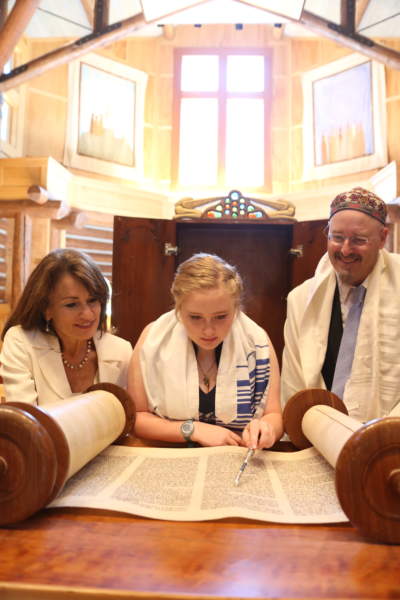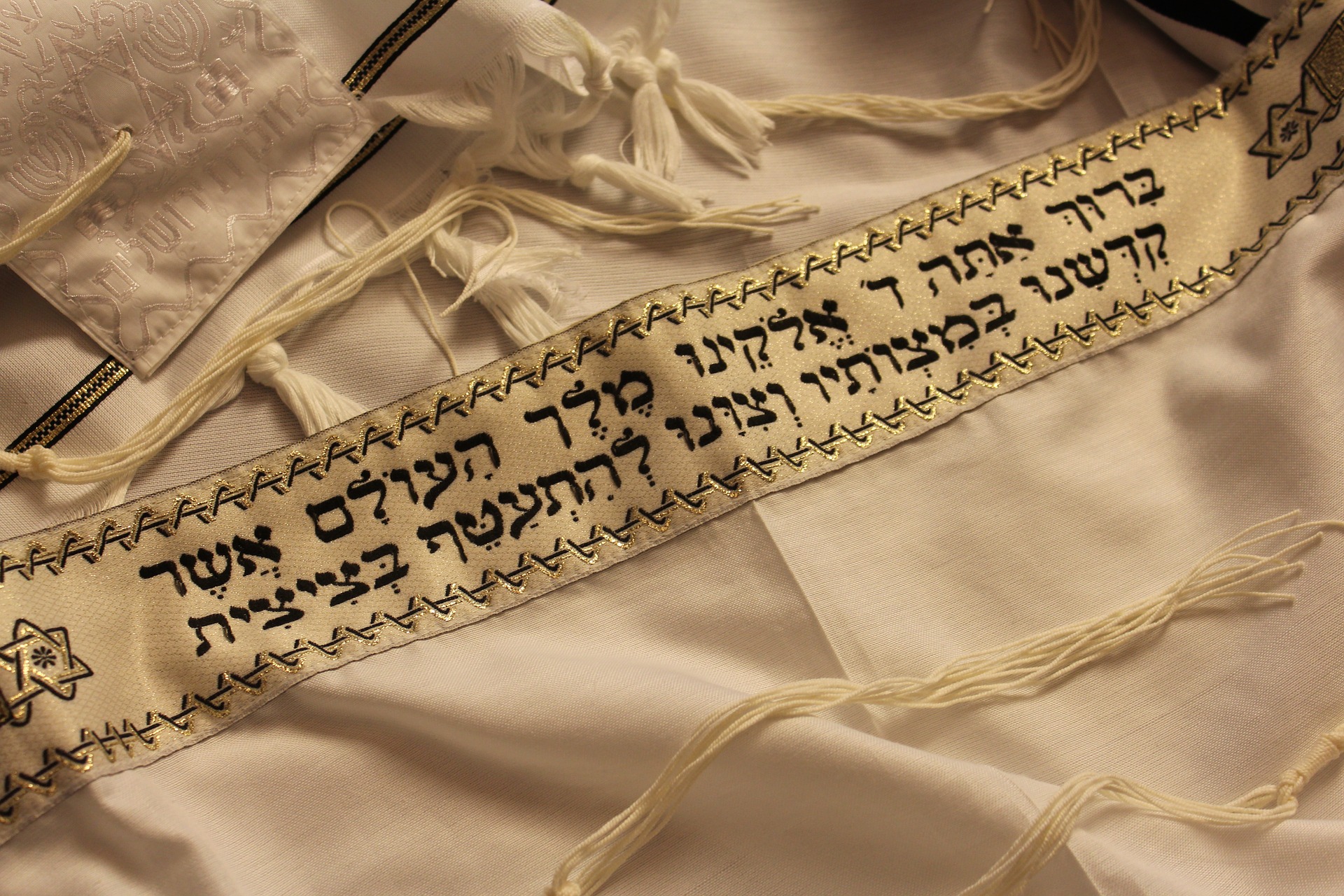Sitting at the dinner table over winter break with her parents, holding her very own three-person Shabbat service, Adrienne Sugarman got the distinct sense that home was not quite the place it used to be.
Sugarman, a Middlebury College sophomore, was intent on recreating the Shabbat services that she attends every week on campus. Needless to say, the experience was not as fulfilling. “We got the candles, we got the grape juice, and it was literally just me singing at my parents for an hour while they tried to nod along and be like yeah, cool, we support you,” she recalled with laughter.
On Middlebury’s campus in Vermont, Sugarman keeps kosher, participates in a religious fellowship, and eagerly and openly discusses her Judaism with friends. Returning home to Wyoming — to a town with no formal synagogues and a small Jewish population — can be awkward at times. Her parents, one culturally Jewish and the other Lutheran, don’t practice religion themselves, although they fully support their daughter doing so.
Growing up, Sugarman’s parents made the decision to allow her to choose her religious path. Her relationship with Judaism mostly centered around attending High Holiday services. “I interacted with Judaism maybe four times a year,” she said, “so it wasn’t that big a part of who I was growing up.” Late in high school, that all changed.
“Junior or senior year of high school, I was really getting into ancestry and connecting to where I came from and where my grandparents came from, and a part of that was always Judaism,” Sugarman said. Her desire to discover her heritage led her to make family trees on Ancestry.com and prompted her decision to become a bat mitzvah in her senior year.

Becoming a bat mitzvah was also about wanting to feel ready to embark on a new stage in life. “Looking forward toward college, I wanted to become an adult in as many ways as I possibly could,” she said. For Sugarman, teaching herself the necessary Hebrew to become a bat mitzvah at age 17 was an integral part of the transition from childhood into adulthood.
The process also shifted her outlook on the world in a profound way. “I felt like I’d unlocked a really important part of humanity as a whole,” she said, referring to her newfound understanding of the role that religion plays in people’s lives. Coming to Middlebury as a freshman, Sugarman felt that being a bat mitzvah allowed her to “genuinely feel connected to Judaism and to the rituals that Hillel does every Friday.” The student-run Hillel at Middlebury has become an integral aspect of Sugarman’s college community. What she enjoys most is that same thing that attracts so many students to Hillel: kehilla, or community.
Sugarman spoke of the “release and calm” she feels on Friday nights, surrounded by people she knows well, participating in a series of prayers that are consistent across services. Middlebury Hillel’s quirks, such as clapping during the V’shamru, add to that feeling of home.
Becoming part of Jewish community later than most has given Sugarman the chance to reflect on how one experiences the world as a member of a religious minority. There are certainly upsides – such as being a part of a tight-knit world filled with chesed – but there are also, she acknowledged, some downsides.
One frustration she mentioned was the lack of cultural awareness surrounding Judaism and Jewish holidays. “Growing up, everyone knew what Lent was and what it entailed and when people were doing it,” she said. “There was none of that awareness around Judaism.”
At home, when trying to keep kosher over breaks, Sugarman sometimes runs into difficulties. She spoke of her extended relatives’ confusion, when, over dinner one day, she didn’t eat sausage pizza like everyone else. When they inquired as to why not, she told them she keeps kosher, “and they freaked out, and said ‘oh my gosh, we’re so sorry, we didn’t know.’”
On a campus hundreds of miles from home, Sugarman sees echoes of that same unfamiliarity. “When I say that I keep kosher, people will say ‘okay, cool,’ and then there will be a silence and typically they’ll ask, ‘so what does that mean?’” she said.
For Sugarman, part of the beauty in being Jewish is being able to answer those questions, and ask her own in return – very much in the spirit of Passover. After all, it is through questioning that she continues to discover her own religious identity and chooses, day after day, how to live her life as a Jewish student.
Kayla Lichtman is a sophomore at Middlebury College studying anthropology and political science. She serves as a writer for the Middlebury Campus and her past work has appeared in Study Breaks Magazine.
Featured image credit: Pixabay.com/BRBurton23.

